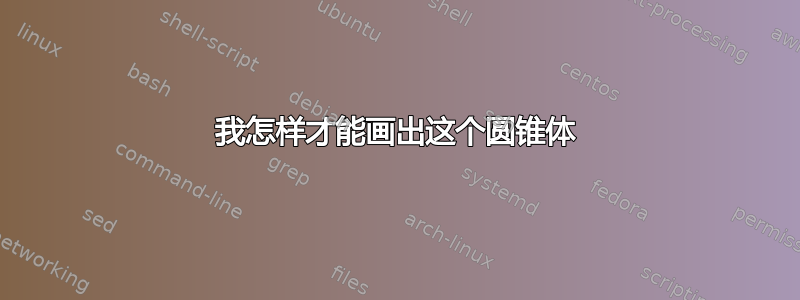
我想画出这个图形:
有人能帮助我完成这项工作吗:
\documentclass[border=5pt]{standalone}
\usepackage{tikz,tikz-3dplot}
\usetikzlibrary{patterns}%
\newcounter{iloop}
\def\relRad{0.3}
\def\RodLength{1.65}
\begin{document}
%\foreach \k in {10,20,...,200}{
\tdplotsetmaincoords{60}{110}%\110
\begin{tikzpicture}[scale=5,tdplot_main_coords,important line/.style={red}]
\useasboundingbox[tdplot_screen_coords] (-2.5,-1.5) rectangle (3,2);
\coordinate (O) at (0,0,0);
\node[red, left] at (O) {$O$};
\begin{scope}[purple]
\draw[thick,->] (O) -- (1.5,0,0) node[anchor=north]{$X$};
\draw[thick,->] (O) -- (0,1.5,0) node[anchor=west]{$Y$};
\draw[thick,->] (O) -- (0,0,1.5) node[anchor=south]{$Z=Z_0$};
\draw[thick,->] (O) -- (0.3,0,0) node[anchor=north, left]{$\vec i$};
\draw[thick,->] (O) -- (0,0.3,0) node[near end, below]{$\vec j$};
\draw[thick,->] (O) -- (0,0,0.3) node[anchor=south, right]{$\vec k$};
\end{scope}
% \draw [opacity=1,important line] (-0.5,-0.5,1) -- (0.5,0.5,1) -- (0,0,0) -- cycle;%big triangle
\begin{scope}[canvas is xy plane at z=1]
\draw[important line] (\tdplotmainphi-15:0.5)
-- (O) -- (\tdplotmainphi+180+15:0.5) ;
\draw[important line] (0,0) circle [radius=0.45cm];
\draw[ultra thick,shorten >=-1.5cm] (O) -- (\tdplotmainphi-15:0.5)
node[pos=1.3,above right]{$(\Delta)$};
\path (\tdplotmainphi-15:0.5) node[fill,circle,inner
sep=3pt,black,label=right:$M$]{};
\end{scope}
\tdplotsetrotatedcoords{30}{40}{10}%%changed
\begin{scope}[tdplot_rotated_coords,blue]
\draw[thick,->] (O) --++ (1.5,0,0) node[anchor=north]{$X_1$};
\draw[thick,->] (O) --++ (0,1.5,0) node[anchor=west]{$Y_1$};
%\draw[thick,->] (O) --++ (0,0,1.5) node[anchor=south]{$z_s$};
\draw[thick,->] (O) --++ (0.3,0,0) node[anchor=north, left]{$\vec e_{\rho}$};
\draw[thick,->] (O) --++ (0,0.3,0) node[near end, left]{$\vec e_{\varphi}$};
%\draw[thick,->] (O) --++ (0,0,0.3) node[anchor=south, right]{$\vec k_s$};
\end{scope}
\end{tikzpicture}%}
\end{document}
答案1
这主要是说您可以使用它canvas is xy plane at z=1来绘制圆锥体的圆。除此之外,除了未定义的事实之外,代码中还有不少非常奇怪的东西important line,如评论中所述。在发布代码之前,您是否可以考虑清理这些东西?
\documentclass[border=5pt]{standalone}
\usepackage{tikz,tikz-3dplot}
\usetikzlibrary{patterns}%
\newcounter{iloop}
\def\relRad{0.3}
\def\RodLength{1.65}
\begin{document}
%\foreach \k in {10,20,...,200}{
\tdplotsetmaincoords{60}{110}%\110
\begin{tikzpicture}[scale=5,tdplot_main_coords,important line/.style={red}]
\useasboundingbox[tdplot_screen_coords] (-2.5,-1.5) rectangle (3,2);
\coordinate (O) at (0,0,0);
\node[red, left] at (O) {$O$};
\begin{scope}[purple]
\draw[thick,->] (O) -- (1.5,0,0) node[anchor=north]{$X$};
\draw[thick,->] (O) -- (0,1.5,0) node[anchor=west]{$Y$};
\draw[thick,->] (O) -- (0,0,1.5) node[anchor=south]{$Z=Z_0$};
\draw[thick,->] (O) -- (0.3,0,0) node[anchor=north, left]{$\vec i$};
\draw[thick,->] (O) -- (0,0.3,0) node[near end, below]{$\vec j$};
\draw[thick,->] (O) -- (0,0,0.3) node[anchor=south, right]{$\vec k$};
\end{scope}
% \draw [opacity=1,important line] (-0.5,-0.5,1) -- (0.5,0.5,1) -- (0,0,0) -- cycle;%big triangle
\begin{scope}[canvas is xy plane at z=1]
\draw[important line] (\tdplotmainphi-15:0.5)
-- (O) -- (\tdplotmainphi+180+15:0.5) ;
\draw[important line] (0,0) circle [radius=0.5cm];
\draw[ultra thick,shorten >=-1.5cm] (O) -- (\tdplotmainphi-15:0.5)
node[pos=1.3,above right]{$(\Delta)$};
\path (\tdplotmainphi-15:0.5) node[fill,circle,inner
sep=3pt,black,label=right:$M$]{};
\end{scope}
\tdplotsetrotatedcoords{30}{40}{10}%%changed
\begin{scope}[tdplot_rotated_coords,blue]
\draw[thick,->] (O) --++ (1.5,0,0) node[anchor=north]{$X_1$};
\draw[thick,->] (O) --++ (0,1.5,0) node[anchor=west]{$Y_1$};
%\draw[thick,->] (O) --++ (0,0,1.5) node[anchor=south]{$z_s$};
\draw[thick,->] (O) --++ (0.3,0,0) node[anchor=north, left]{$\vec e_{\rho}$};
\draw[thick,->] (O) --++ (0,0.3,0) node[near end, left]{$\vec e_{\varphi}$};
%\draw[thick,->] (O) --++ (0,0,0.3) node[anchor=south, right]{$\vec k_s$};
\end{scope}
\end{tikzpicture}%}
\end{document}
这是一个可以说更忠实地呈现了您的屏幕截图的版本。正如 Arnaud 所指出的,您可能需要其他旋转角度。所以在我看来,这看起来还不错。
\documentclass[border=5pt]{standalone}
\usepackage{tikz,tikz-3dplot}
\usetikzlibrary{patterns}%
\def\relRad{0.3}
\def\RodLength{1.65}
\begin{document}
%\foreach \k in {10,20,...,200}{
\tdplotsetmaincoords{60}{110}%\110
\begin{tikzpicture}[scale=5,tdplot_main_coords,important line/.style={red},
>=stealth]
\useasboundingbox[tdplot_screen_coords] (-2.5,-1.5) rectangle (3,2);
\coordinate (O) at (0,0,0);
\node[red, left] at (O) {$O$};
\begin{scope}[purple]
\draw[thick,->] (O) -- (1.5,0,0) node[anchor=north]{$X$};
\draw[thick,->] (O) -- (0,1.5,0) node[anchor=west]{$Y$};
\draw[thick,->] (O) -- (0,0,1.5) node[anchor=south]{$Z=Z_0$};
\draw[thick,->] (O) -- (0.3,0,0) node[anchor=north, left]{$\vec i$};
\draw[thick,->] (O) -- (0,0.3,0) node[near end, above right]{$\vec\jmath$};
\draw[thick,->] (O) -- (0,0,0.3) node[anchor=south, right]{$\vec k$};
\end{scope}
% \draw [opacity=1,important line] (-0.5,-0.5,1) -- (0.5,0.5,1) -- (0,0,0) -- cycle;%big triangle
\begin{scope}[canvas is xy plane at z=1]
\draw[important line] (\tdplotmainphi-15:0.5)
-- (O) -- (\tdplotmainphi+180+15:0.5) ;
\draw[important line] (0,0) circle [radius=0.5cm];
\draw[ultra thick,shorten >=-1.5cm] (O) -- (\tdplotmainphi-15:0.5)
node[pos=1.3,above right]{$(\Delta)$};
\path (\tdplotmainphi-15:0.5) node[fill,circle,inner
sep=3pt,black,label=right:$M$](M) {};
\end{scope}
\tdplotsetrotatedcoords{75}{0}{0}%%changed
\begin{scope}[tdplot_rotated_coords,blue]
\draw[thick,->] (O) --++ (1.5,0,0) node[anchor=north]{$X_1$};
\draw[thick,->] (O) --++ (0,1.5,0) node[anchor=west]{$Y_1$};
%\draw[thick,->] (O) --++ (0,0,1.5) node[anchor=south]{$z_s$};
\draw[thick,->,black] (O) --++ (0.5,0,0) coordinate(erho) node[above right]{$\vec e_{\rho}$};
\draw[dashed,black] (M) -- (erho);
\draw[thick,->] (O) --++ (0,0.3,0) node[near end, left]{$\vec e_{\varphi}$};
%\draw[thick,->] (O) --++ (0,0,0.3) node[anchor=south, right]{$\vec k_s$};
\end{scope}
\end{tikzpicture}%}
\end{document}






